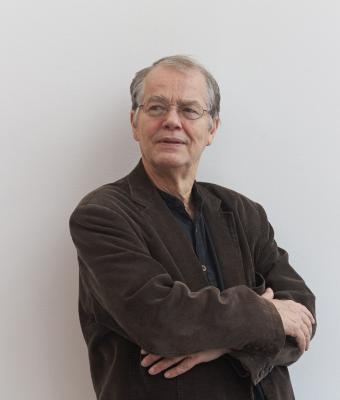
Born in Dresden in 1939 in the former GDR (East Germany) Volker Braun worked as a labourer before becoming a dramatist and director at the Berliner Ensemble (with Brecht’s widow, Helene Weigel) and at the Deutsches Theater, also in Berlin. He is the author of numerous plays, volumes of fiction and essays, as well as ten volumes of poetry, most recently: Auf die schönen Possen (2005). Rubble Flora: Selected Poems, translated by David Constantine and Karen Leeder (Seagull Press) appeared in 2014.
He is one of Germany’s foremost lyric poets and has received numerous major awards for his writing: including the prestigious Georg Büchner Prize (2000) awarded by the German Academy for Language and Literature. Braun is an avowedly political poet, in that from the beginning his work has been filled with rage, grief and a determined hope in the face of history in the making. But his poetry has also simultaneously always transcended national and political borders, seeking out the possibilities for being human in poems that insist on the love, humour, grief and beauty of the everyday world.